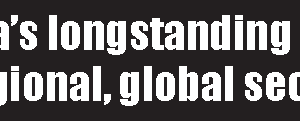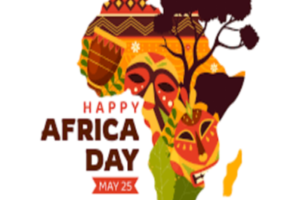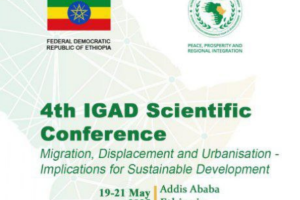
Ethiopia is in many ways a unique African nation. Unlike other African states, Ethiopia has not included Independence Day in its list of public holidays. The reason for this is obvious. Since its founding three millennia ago, Ethiopia has always been an independent state. This is one of the rich histories that make Ethiopians hold their heads high wherever they may go.
What Ethiopians celebrate instead of Independence Day is Victory Day. These are days when they won a decisive historic victory against belligerent invaders who wanted to take away their freedom as citizens and their sovereignty as a nation.
Of the 13 Ethiopian holidays, two are victory days. Few countries celebrate public victory days to commemorate different victories won in different centuries. –The first is the victory of Adwa near the end of the 19th century and the other is the Patriots’ Victory Day, which commemorates the victory of another generation of Ethiopians in the second quarter of the 20th century. So, each year Ethiopians celebrate Adwa’s victory in the last week of March while they celebrate patriot victory day this week [at the beginning of May].
Although not recognized as national public holidays, other victory days also mark a turning point in Ethiopian history and should have been observed as public holidays. All those victories Ethiopians scored against foreign invaders came at a huge sacrifice paid by the patriots of every generation. That is why most of the events covered in the Ethiopian history books are about war—the struggle to defend Ethiopia’s freedom and sovereignty.
Ethiopians’ fight to defend their motherland cascades through the generations and continues to this day. This is so because Ethiopia’s adversaries have never ceased to pursue their ambition of dismantling Ethiopia, and erasing it from the map of the world.
From generation to generation the selfless Ethiopian patriots have been sacrificing their blood, bones, their personal and family life in the struggle against colonizers, aggressors, and separatists, so that their people live in freedom, and their country maintains its sovereignty and territorial integrity.
Even though colonialism is a thing of the past these days, Ethiopia’s sovereignty is still under threats by adversary powers from far and near. These powers are more potent than the colonizers in that they are well informed about Ethiopia, and know the age-old Ethiopians’ secret to their invincibility their unity. And therefore, they are working tirelessly to weaken the bonds that sustain Ethiopian ‘unity by employing various strategies including sponsoring divisions among Ethiopians and recruiting traitor groups.
Thus, the present generation of Ethiopians faces far more formidable enemies than those in the previous generations. Being a patriot in today’s Ethiopia entails more than just carrying a rifle and combating the enemy in the field. It also means developing a strong mindset that enables them to look beyond their ethnic and religious circles, and join hands with their fellow countrymen to work for peace and development.
It appears that the struggle of Ethiopians to protect the sovereignty of their nation against adversary powers is far from over. The struggle is more intense and arduous than in the past. In that sense, the celebration of such victory days as the patriotic day is a time for responsible citizens to salute the national flag of Ethiopia and reaffirm their commitment to their patriotic duties.
In addition to guarding against conventional and existing security threats, insurrection and incursions, Ethiopians need to be patriotic enough to assert their nations’ economic sovereignty. With the lure of food aid grants, loans, pressure of debt traps, and economic sanctions, external powers are interfering in the nation’s domestic affairs. They even go as far as prescribing policies and actions to be taken in response to certain political incidents and issues, such actions are nothing less than violations of a nation’s freedom and sovereignty.
Even though Ethiopia and the rest of the African nations are considered an independent nation-state, they still find themselves trapped in a world economy dominated by the few colonial powers and their allies. Beset by industrial underdevelopment and a global financial framework that systematically favored the wealthy northern countries, even Africa’s most ambitious and dynamic economic models like that of Ethiopia are struggling to make the desired progress in building up their economies and ensuring prosperity for the broad majority.
Independent economic analysts say that the global economy of today remains dominated by neoliberal hardliners who believe developing nations like Ethiopia can do little more than sell off their natural resources and ship their labor force abroad. Thus, until the developing economies jointly devise alternative strategies, their economic sovereignty would remain compromised.
The incumbent Ethiopian government has so far introduced a considerable number of patriotic policy measures to assert Ethiopia’s economic sovereignty. In the agricultural sector, the government has made successful efforts to boost agricultural productivity and production, thus reducing the nation’s dependency on external food aid, as well as the import of staple food grains like wheat. Ethiopia has even become a wheat-exporting nation.
The government also enabled the nation to get access to another economic block as an alternative to the western block. Last year, Ethiopia became a member of the BRICS economic block. This arrangement would help reduce the unwelcome pressure and interference of the western block and may also reduce the dependency of the Ethiopian economy on the US dollar and Western financial institutions.
The government soon after assuming power took decisive and swift corrective measures to revitalize the progress of the GERD project, the largest and most crucial development effort. Six years after the remedial measures, the project is now nearing completion and has already transformed Ethiopia from the category of power-hungry to a power-surplus nation.
The incumbent government is still carrying out its highly commendable patriotic duty of regaining direct access to the sea through peaceful diplomatic and quid pro quo approaches. Gaining direct access to the sea is a task long overdue and directly a matter of national security that is of overriding importance given the current increasingly volatile geo-political condition the nation is situated in.
As in the days of Adwa in 1896, as in the days of fascist Italy’s aggression in 1942, now is the crucial time for Ethiopians to be patriotic: Citizens at home and abroad must look each other in the eye and find consensus on fundamental national issues. They must be patriotic and courageous enough to look beyond their ethnic and religious circles and create a common roadmap for peace and prosperity for their country. The Ethiopian Diaspora must be patriotic enough to bring back to Ethiopia the wealth and expertise they have acquired abroad to create jobs, boost entrepreneurship, intensify manufacturing and import substitution, and improve the availability of finance.
It is a patriotic duty for civil servants to motivate themselves to perform their duties according to the rules and guidelines and thus render their services to their clients without fear or favor. The youth need to be taught the honor of being patriots, develop the ethics and persona of selflessness to fight corruption, and nepotism, and be enthusiastic about sacrificing their time and energy to bring change to the lives of their fellow citizens.
Overall, history has challenged the present generation of Ethiopians to prove if they can emulate their forefather by scoring the third epic victory to assert the nation’s economic sovereignty. Time will tell. But if only they managed to maintain their unity, Ethiopians would certainly win. Eternal glory to the Ethiopian patriots.
BY SOLOMON WASSIHUN
THE ETHIOPIAN HERALD SUNDAY EDITION 5 MAY 2024




